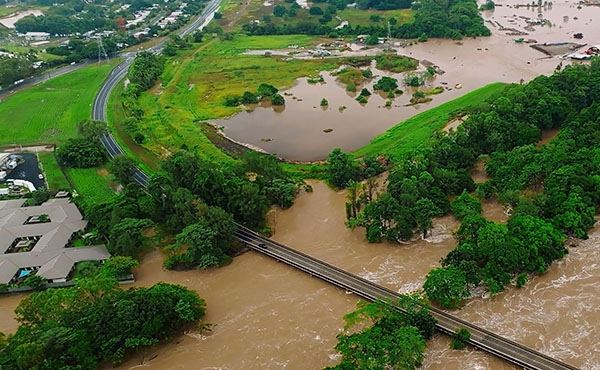Societal attitudes are the beliefs, feelings and behavioural tendencies generally held by people in a particular society towards a person, place, thing, issue, event or symbol.1523, 1524 They are formed by culture, social norms, values and experiences, and are influenced by ecological, social, economic and political events. Societal attitudes are drivers of change as they underpin social values (Section 4.5.1) and can shape group or individual behaviour and actions.1525 Understanding changes in societal attitudes can help shape more adaptive management approaches. Community views regarding threats to the Reef, which can be more directly influenced by management in the Region, are reported separately in Section 9.3.1.
Societal attitudes are drivers of change that shape behaviours and actions
Since 2019, many important events have affected broadscale societal attitudes. The world has undergone its most significant global social upheaval in modern times with the COVID-19 pandemic. Inflation has since climbed rapidly, and geopolitical instability has risen.
The United Nations Biodiversity Conference (COP15) took place in Canada in 2022, and the Intergovernmental Panel on Climate Change (IPCC) released its Sixth Assessment Report (AR6) Synthesis Report in 2023. This report provides a best estimate of 1.5 degrees Celsius of global warming between the late 2020s and mid-2030s.536 In Australia, 2019 was the warmest year on record, and there has been a multitude of extreme weather events, including the 2019 Townsville floods, the 2019–2020 east coast bushfires and the 2021–2022 east coast floods. The Reef experienced mass coral bleaching events in the 2020 and 2022 summers. In 2023, the Great Barrier Reef World Heritage Area was considered for inclusion on the list as a World Heritage in Danger.
Concern about cost of living is the dominant issue for Australians at present and is at its highest level of the past decade, while environmental concerns dip.1526,1527 Levels of national pride, belonging and a sense of social justice are lower now than before the COVID-19 pandemic.1528 Trust in all institutions has decreased and is resulting in increased polarisation.1529
The topic of climate change has been prominent in media coverage and policies in recent years but has also varied over time.1530 Australians’ climate scepticism has been shown to reduce over time as hotter global temperatures are recorded.1531 The Griffith Climate Action Survey, conducted annually since 2010, reports an increase in national concern about climate change.1532 The survey reports that, in 2022, 71 per cent of Australians felt ‘fairly’ or ‘very’ concerned about climate change, similar to 2021 results (72 per cent) and markedly higher than in 2010 to 2011 (35 per cent).1532 However, while Australians are concerned about climate change, belief that it is an ‘extremely serious problem’ has been declining since 2021.1532 Australians are increasingly conscious and concerned about the impact of climate change and support decarbonisation; however, support for renewable energy may face challenges during periods of high inflation.1526,1528,1533,1532
Living a sustainable lifestyle is important to most Australians, but only about a quarter claim to be very or extremely knowledgeable about sustainability.1527 Action on ‘sustainability’ in general is less prioritised than specific concerns about household waste, health of waterways, deforestation and bushfires.1526 Self-reported engagement in several sustainable behaviours is also down.1526
Intervention activities are increasing in many research and industry sectors, including tourism. Australian attitudes toward restoration and adaptation options in the Reef influence the support for interventions.1534 While members of the public appear to value the benefits of deploying novel interventions on the Reef, promoting awareness of potential risks and benefits associated with intervention through media platforms will be important to increase public knowledge of associated risks and benefits.1162


